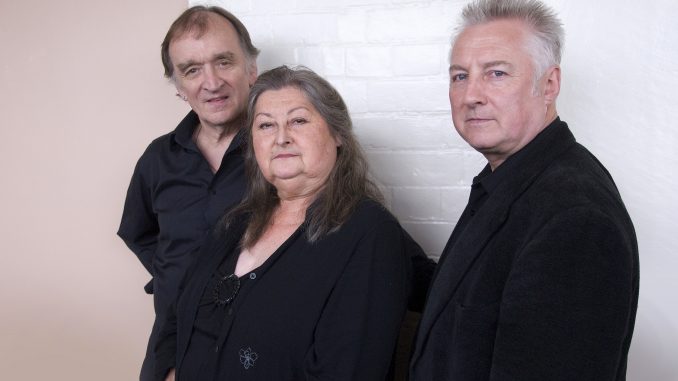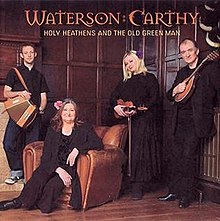
A unique innovator within the folk tradition and the UK’s own Maybelle Carter.
One of the great voices of British Folk Music will sing no more. Norma Waterson, a founding member of The Watersons and a member of Waterson:Carthy, alongside her husband, Martin Carthy and daughter Eliza, passed away on the 30th January 2022, following hospitalisation with pneumonia.
Norma Waterson was born in Hull, Yorkshire, in August 1939. Orphaned at an early age she and her brother Mike and sister Elaine (Lal) were brought up by their gypsy grandmother. She learned traditional songs as a young child but the band that she formed with her siblings and a cousin, John Harrison, eventually known as The Watersons, started out as a skiffle band, The Folksons, in the early 60s. Moving across to more traditional material quickly saw them establish themselves as the first family of traditional folk music and there are definite parallels between the Watersons and the Carter family, both coming from poor, working-class backgrounds and traditional music being a source of entertainment and togetherness within the family. Being siblings, they also possessed that special ability to create great harmonies when they sang and their debut album, 1965’s “Frost and Fire” became Melody Maker’s album of the year; a rare thing for a debut album.
The Watersons saw considerable critical success before splitting up in 1968, when Norma decided to go off to Montserrat to be a radio DJ! The band reformed in 1972, following Norma’s return, but this second phase of the group’s existence would become increasingly known for its shifting line-ups and the incorporation of members of their wider family. It was during this period that Norma Waterson would also be involved in the formation of Blue Murder, the folk “supergroup” that would incorporate members of The Watersons and Swan Arcade, along with various other established musicians, for a wide range of festival appearances and recordings that have continued to the present day.
The Watersons remained the first family of English folk music well into the 1990s but the death of younger sister Lal Waterson in 1998 really marked the end of the group as a family unit and, though the more widely drawn members of The Waterson Family continued to appear together occasionally, there would be no more group recordings. Instead, Norma poured her considerable talents into Waterson:Carthy, the group she had established with her husband (Norma Waterson and Martin Carthy married in 1972) and daughter in the early 90s, and into a solo recording career that started with her eponymously titled debut in 1996 and would produce a further four albums, concluding with 2018’s “Anchor” (recorded with Eliza Carthy & the Gift Band). While remaining firmly rooted in folk music, Norma Waterson was never one to turn away from a good song, and later recordings saw her covering songs by the likes of Tom Waits (‘Strange Weather’) and Nick Lowe (‘The Beast in Me’).
 Waterson:Carthy would release a total of seven albums, the final one being “Holy Heathens and the Old Green Man” in 2006 but the band remained active as a performing unit until relatively recently. In addition to this, Norma and husband Martin Carthy would regularly perform as a duo and she was always an active musician, ready to lend her considerable vocal talents to a wide range of collaborations and performances.
Waterson:Carthy would release a total of seven albums, the final one being “Holy Heathens and the Old Green Man” in 2006 but the band remained active as a performing unit until relatively recently. In addition to this, Norma and husband Martin Carthy would regularly perform as a duo and she was always an active musician, ready to lend her considerable vocal talents to a wide range of collaborations and performances.
More recently the pandemic had proved particularly tough for musicians like Norma Waterson, whose very existence had been built around regular live performance and bringing her music to audiences around the UK and further afield. The family had to resort to crowdfunding to make ends meet through a very difficult financial period that also coincided with Norma’s failing health, and it’s a mark of the high regard Norma Waterson was held in that so many fans and supporters responded to the appeal.
Norma Waterson was a folk musician steeped in the roots of traditional music, but she was also an innovator and a strong woman who took life as it came and lived it to the full. Tales abound of her generosity of spirit and her love of the music she sang and for both those that made music with her and for her audiences, who were always important to her. She lived to perform and to pass on her knowledge of the folk tradition.
The link between English and Celtic folk and Americana is well documented. In many ways, Norma Waterson can be seen as our own Maybelle Carter – the woman at the heart of a musical dynasty whose legacy will live on through her recordings and through future generations of this remarkable family.


